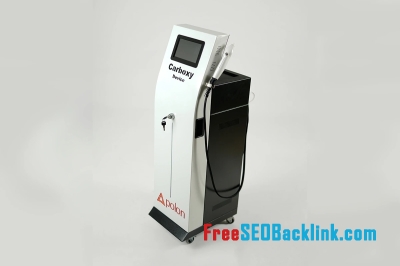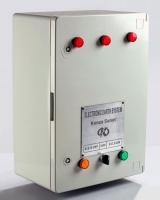In the ever-evolving world of aesthetic medicine and dermatology, carboxytherapy has emerged as a revolutionary, non-invasive procedure gaining popularity for its broad spectrum of cosmetic and therapeutic benefits. Originally developed in France in the 1930s, carboxytherapy has evolved with technology, leading to the development of sophisticated carboxytherapy device that have made the treatment safer, more efficient, and more accessible.
What is Carboxytherapy?
Carboxytherapy refers to the therapeutic and aesthetic use of carbon dioxide (CO₂) gas injected subcutaneously (beneath the skin) to improve blood flow, stimulate collagen production, and enhance skin elasticity. It is used to treat a variety of conditions including:
-
Dark under-eye circles
-
Stretch marks and scars
-
Cellulite
-
Localized fat deposits
-
Hair loss
-
Wrinkles and skin laxity
How It Works
When CO₂ is injected into the targeted area, the body interprets the gas as a sign of oxygen deficiency. In response, blood flow increases to the area, bringing with it a rich supply of oxygen and nutrients. This physiological reaction promotes cell regeneration, collagen synthesis, and fat metabolism, which collectively result in skin rejuvenation and improved tissue function.
Applications of Carboxytherapy
Carboxytherapy is a versatile treatment with applications in both cosmetic dermatology and medical therapy:
Aesthetic Uses:
-
Skin tightening: Improves elasticity and reduces fine lines and wrinkles.
-
Stretch marks: Reduces the appearance by improving collagen remodeling.
-
Cellulite and fat reduction: Enhances microcirculation and lipolysis (fat breakdown).
-
Hair restoration: Stimulates blood flow to hair follicles, supporting hair regrowth.
Medical Uses:
-
Peripheral vascular diseases
-
Chronic wounds
-
Psoriasis and skin ulcers
-
Scarring and skin fibrosis
Carboxytherapy Devices: The Technology Behind the Treatment
The modern carboxytherapy device is a precise, computerized system designed to administer controlled amounts of CO₂ gas safely and effectively into the subcutaneous tissue. These devices typically consist of:
Key Components:
-
CO₂ gas cylinder: Medical-grade carbon dioxide.
-
Flow regulator: Controls the volume and pressure of gas.
-
Heating unit: Warms the gas to body temperature for patient comfort.
-
Digital interface: Allows professionals to adjust settings for depth, rate, and duration of injections.
-
Sterile tubing and fine needles: Ensure hygienic and precise delivery of gas.
Safety Features:
-
Pre-set safety limits to avoid over-pressurization.
-
Real-time monitoring of gas flow and pressure.
-
Filters to remove impurities from the gas supply.
Notable Devices on the Market:
-
CarboxyPen
-
DIOX Carboxytherapy
-
Revitacare&rsquos Carboxytherapy System
-
CO2Lift® for topical carboxytherapy (non-injection-based)
Each system may vary in complexity and usage depending on the practitioner&rsquos needs, but all are designed with patient comfort and treatment efficacy in mind.
Advantages and Considerations
Benefits:
-
Minimally invasive
-
No downtime
-
Quick treatment sessions (15&ndash30 minutes)
-
Safe for all skin types
-
Cumulative results with multiple sessions
Considerations:
-
Mild discomfortpressure during injection
-
Temporary rednessswelling
-
Requires multiple sessions for optimal results
-
Not suitable for individuals with certain respiratorycardiovascular conditions
Conclusion
Carboxytherapy represents an exciting advancement in both cosmetic and therapeutic skin treatments. With the support of modern carboxytherapy devices, the procedure has become a reliable, efficient, and increasingly popular solution for those seeking skin rejuvenation, fat reduction,improved circulation. As technology continues to evolve, we can expect even more refined and effective applications of this CO₂-based therapy in both medical and aesthetic fields.
Whether used for eliminating dark circles, smoothing out stretch marks,stimulating hair growth, carboxytherapy is a promising tool in the hands of trained professionals.



 Buying an electronic earth device
Buying an electronic earth device
Register comment (5 Score)